VITROBIO’s Innovative Multi-target Polymeric Technology
VITROBIO’s innovative technology, perfected over years of rigorous research, uses a three-step process to develop unique medical devices. This research is supported by more than 50 scientific publications, a collection of global patents, and multiple awards. The technology works by recognizing that most diseases involve multiple factors, and an effective treatment must simultaneously address all these factors for a comprehensive therapeutic effect.
Patented technology
International patent until 2040
Scientific awards
Including awards from the French Academy of Sciences
Innovation
Multi-target action with 100% natural ingredients
STEP 1: The Creation of a Cell-Friendly Osmotic Cleaning Film Based on Glycerol
The first step is the use of glycerol, a substance with ten times the osmotic power of sea water. Glycerol is excellent for attracting fluids and providing a favorable environment for cell growth and regeneration. It’s a cell protector, hydrating, non-irritant, and oxygen-permeable. However, the effectiveness of glycerol diminishes as it gets diluted quickly. Hence, the need for the next step.
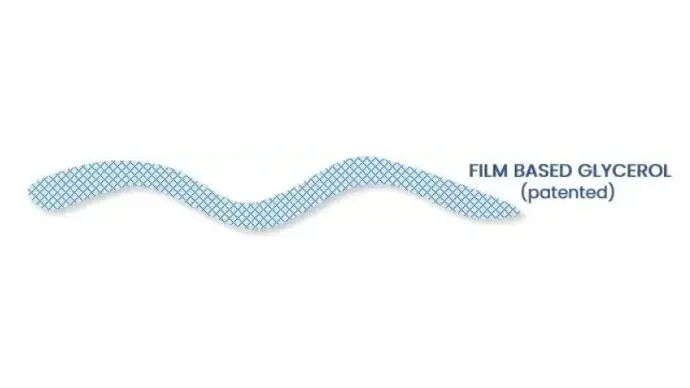
STEP 2: The Development of Filmogenic Glycerol
VITROBIO addresses the dilution challenge by developing a filmogenic glycerol. This innovation involves the use of specific natural polymers capable of binding glycerol molecules to form a polymeric mesh-like structure. Out of several hundred polymers that were analyzed, less than 1% were found capable of creating this bond. This filmogenic glycerol can last for 4 to 6 hours while maintaining its osmotic power and all the beneficial properties of glycerol.
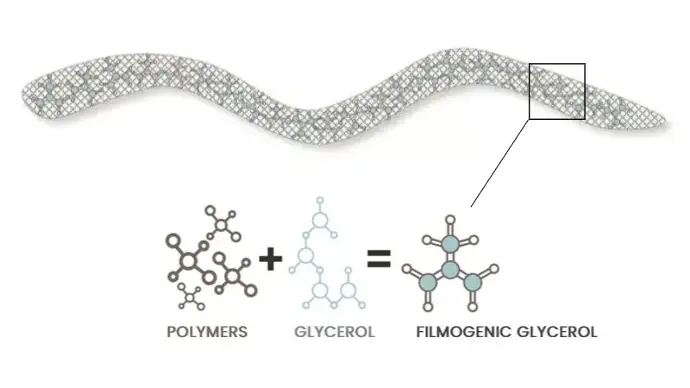
Targeting disease-specific proteins
Before delving into the third step, it’s crucial to understand the role proteins play in disease development and maintenance. Every disease process involves specific proteins, which can be anything from pro-inflammatory proteins (like cytokines and interleukins) to metalloproteinases, and more.
To effectively treat a disease, one must not only identify these proteins but also target them. This is where VITROBIO’s unique approach comes in. By testing the polymers that have the potential to target these specific proteins, the company can create highly tailored treatments. While traditional drugs tend to be mono-targeted, focusing on a single protein, VITROBIO has the capability to be multi-targeted, simultaneously addressing several proteins. This results in a more comprehensive and effective treatment strategy.
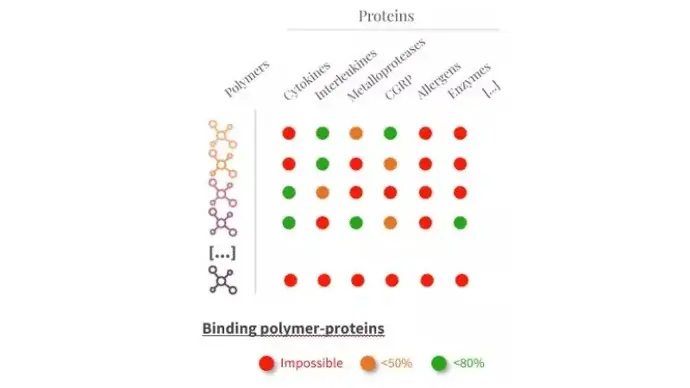
STEP 3: Making Filmogenic Glycerol Capable of Targeting Several Proteins Specifically
In the final step, the polymers in the filmogenic glycerol are adapted to bind specific proteins associated with different diseases. The composition of the polymers is adjusted based on their affinity with a type of protein and the pathology to be treated. Thus, each treatment is customized to target the proteins specifically involved in a particular pathology.
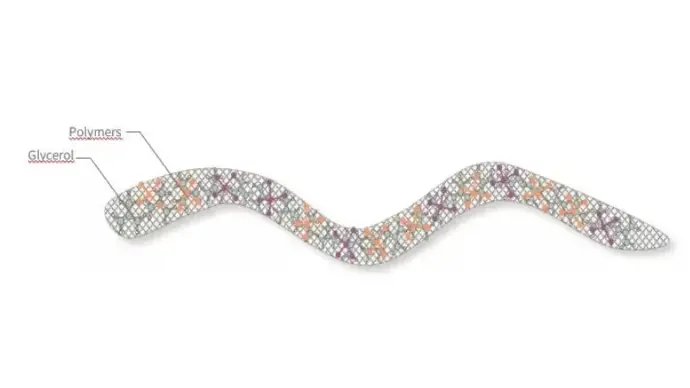
Multi Target treatment
After two decades of research, VITROBIO’s polymeric technology enables the creation of multi-target treatments, specific to the proteins implicated in a disease. These treatments retain the properties of glycerol, remain stable for 4 to 6 hours on a membrane, and specifically target the proteins associated with a particular pathology. This innovative approach has ushered in a new era of targeted and effective treatments for a range of diseases.
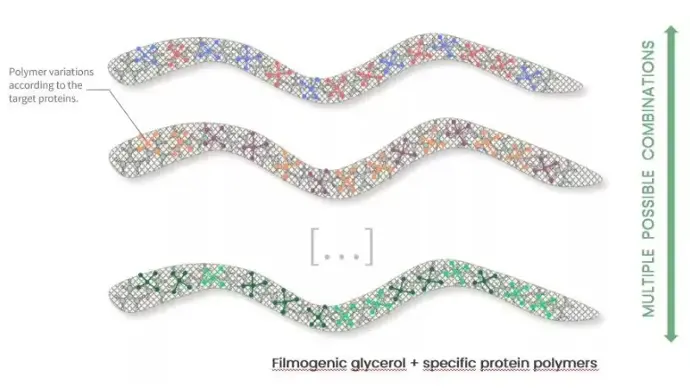
To find out more about the history of Vitrobio
Founded in 1994, VITROBIO is a family-owned company specializing in the development and manufacturing of innovative medical devices for a wide range of health conditions.
With a commitment to advancing healthcare, Vitrobio harnesses polymer-based technology for products targeting pathologies such as rhinosinusitis, pharyngitis, eczema or migraine, and is recognized globally, distributing its devices in over 20 countries.
The company is dedicated to research, quality assurance, manufacturing and regulatory compliance, ensuring readiness under stringent MDR 2017-745 regulations